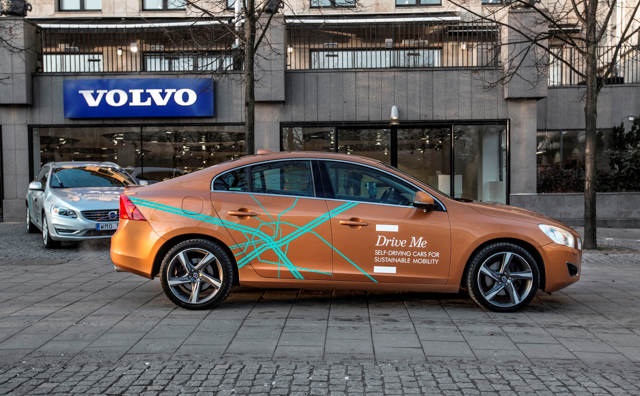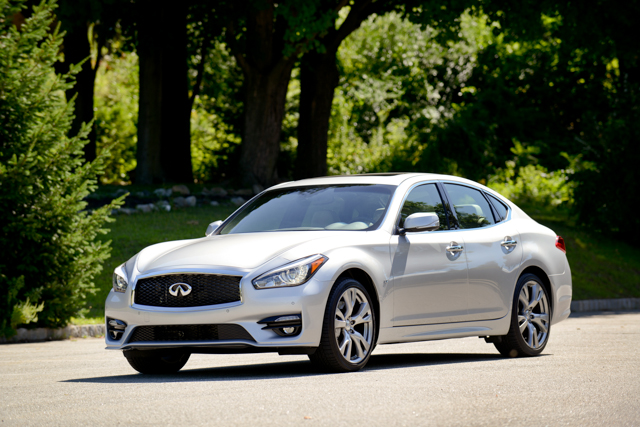The idea of self-driving cars has moved from science-fictional concept to attainable possibility with some speed in recent years, and at this point it seems to be a matter of when, not if, we will have cars that can drive themselves. Volvo has started a pilot program in the city of Gothenburg, Sweden, that will be the first large-scale autonomous-car project in the world.
The program, called “Drive Me–Self-driving cars for sustainable mobility,” sees Volvo teaming up with the Swedish Transport Administration, the city of Gothenburg and the Lindholmen Science Park to put 100 self-driving Volvos on public roads, in everyday driving conditions. Approximately fifty kilometers of selected roads in Gothenburg will be used. All types of traffic density and regulation will be represented. Volvo and the Swedish government hope to define the role of autonomous vehicles in the planning of future cities.
The Volvos involved are Highly Autonomous Cars, a German Federal Highway Research Institute term for cars that can take over all driving functions when allowed to by the driver. The driver can take over in an emergency, but the car is expected to handle things most of the time. This will allow commuters to read, use electronic devices, or just relax. Volvo sees a future in which drivers plan routes with a mix of autonomous and active driving, maximizing commuters’ efficiency. For the “Drive Me” program, vehicles will be driven by customers.
“Autonomous vehicles are an integrated part of Volvo Cars’ as well as the Swedish government’s vision of zero traffic fatalities. This public pilot represents an important step towards this goal,” said Håkan Samuelsson, President and CEO of Volvo Car Group. “It will give us an insight into the technological challenges at the same time as we get valuable feedback from real customers driving on public roads.”






